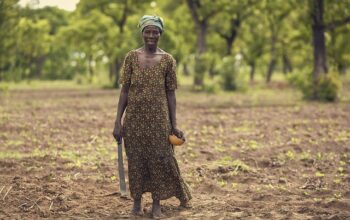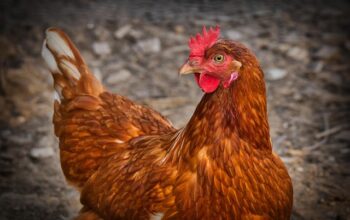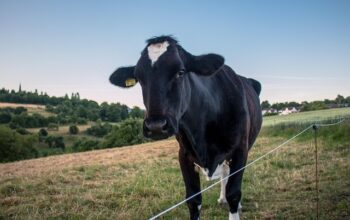Farmers in Ontario require robust and aesthetically pleasing fences for livestock management across diverse landscapes and climates. Traditional methods like wooden posts and barbed wire offer durability and cost-effectiveness. Modern innovations include high-tech PVC and recycled plastic fences, enhancing environmental sustainability while preserving the region's beauty. These eco-conscious options cater to specific farm needs, balancing functionality with visual appeal.
In Ontario, Canada, farmers face diverse challenges when it comes to livestock fencing. This article explores the top three options tailored to meet the unique needs of farms across the province. From traditional solutions to modern innovations and eco-friendly choices, we guide you through durable and effective fence types. Discover how to enhance your farm’s security and productivity while considering Ontario’s specific requirements for effective livestock containment.
Understanding Ontario's Farm Fencing Needs
In Ontario, understanding farm fencing needs is paramount due to the diverse landscapes and varying climates across regions. Farmers require fences that not only contain livestock but also withstand harsh winters and rugged terrain. The ideal fence for farms in Ontario must be durable, cost-effective, and aesthetically pleasing, balancing functionality with environmental considerations.
Farmers in this province often seek fencing options that blend strength and versatility to accommodate various animals, from cattle to sheep. Additionally, with an increasing focus on sustainability, many are opting for materials and designs that minimize environmental impact while enhancing the farm’s natural beauty. Ontario’s farm fencing needs thus revolve around these key factors: sturdiness, affordability, and environmental friendliness—all while catering to the unique challenges presented by the region’s varied agricultural zones.
Traditional Options for Livestock Containment
Farming in Ontario benefits from traditional livestock fencing options that have stood the test of time. One commonly used material is wooden posts and rails, a classic choice for many farm fences. This method offers durability and visibility, allowing farmers to monitor their animals effectively. The simplicity of this design also makes it relatively easy to install and maintain, making it an appealing option for those seeking a cost-effective solution.
Another traditional approach involves the use of barbed wire, known for its effectiveness in containing livestock. While it may not be as aesthetically pleasing as wooden fences, barbed wire is highly durable and capable of withstanding harsh weather conditions. Its sharp barbs act as a physical barrier, preventing animals from straying, making it a reliable choice for farms across Ontario.
Modern Innovations in Farm Fencing Solutions
The world of farm fencing has seen significant advancements, offering Ontario farmers innovative and efficient solutions. Modern innovations in farm fencing cater to diverse needs, environmental conditions, and budget constraints. One prominent trend is the integration of high-tech materials, such as polyvinyl chloride (PVC) and plastic mesh, which provide durability and long-lasting protection against wildlife and livestock. These materials are resistant to rot, rust, and corrosion, ensuring a robust fence system that requires minimal maintenance over time.
Additionally, sustainable fencing options have gained traction, driven by environmental consciousness. Eco-friendly alternatives include recycled plastic fences and natural barriers like hedgerows and native plant buffers. These solutions not only reduce the carbon footprint but also enhance biodiversity and create aesthetically pleasing landscapes. With ongoing advancements in design and material science, farmers in Ontario now have access to a wide array of fence options tailored to their specific requirements, ensuring optimal livestock management while preserving environmental sustainability.
Eco-Friendly and Durable Fence Choices
When looking for a fence for farms in Ontario, eco-friendly and durable options are increasingly sought after by mindful landowners. Two popular choices that tick both boxes are high-density polyethylene (HDPE) and recycled plastic fencing. HDPE is known for its remarkable strength and longevity, withstanding extreme weather conditions without degradation. Its smooth surface inhibits the growth of plants and bacteria, making it low-maintenance. Recycled plastic fences offer a sustainable alternative, utilizing post-consumer waste to create robust barriers that can last for decades. These materials are not only eco-friendly but also flexible, allowing for easy installation and customization to fit various farm layouts.
Additionally, vinyl fencing is another green option worth considering. Vinyl is derived from natural materials like salt and oil, making it a renewable resource. It is highly resistant to rot, rust, and corrosion, ensuring long-lasting performance even in challenging outdoor conditions. Vinyl fences also offer excellent insulation, helping regulate temperatures within the fence line, which can be beneficial for livestock protection and comfort. These eco-friendly fencing solutions not only contribute to conservation efforts but also enhance the overall aesthetics of Ontario farms while providing reliable security for animals.
When it comes to fencing for farms in Ontario, understanding your specific needs and exploring modern innovations can significantly enhance your livestock management. Whether you opt for traditional materials or embrace eco-friendly solutions, the right fence type ensures the safety and health of your animals while catering to your farm’s unique requirements. Choose wisely from among Ontario’s top fence options to create a durable, efficient, and aesthetically pleasing barrier that suits both your land and livestock.




